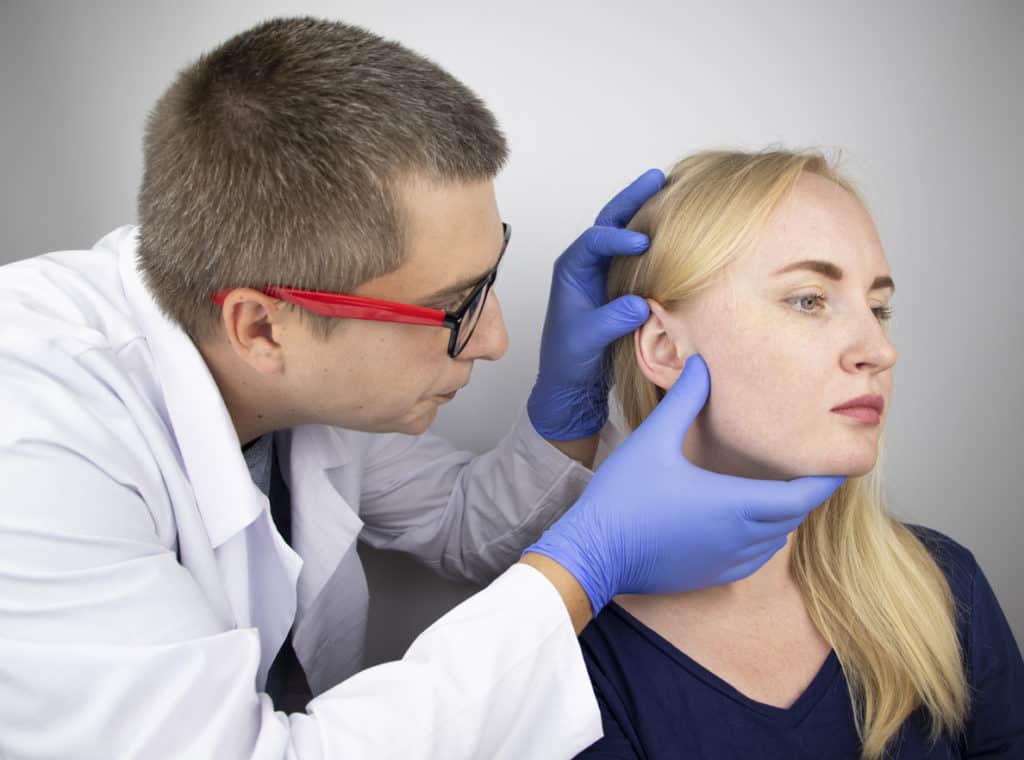Many people experience bouts of temporary tinnitus. What are the signs your tinnitus might go away? Are there any steps you can take to avoid permanent tinnitus?

The three best indicators your tinnitus is only a temporary condition are:
- Other people can hear noise coming from your ear, or the volume remains low.
- You have a treatable medical condition or hearing damage from loud noises.
- Your symptoms recently started and only last for a few minutes.
What is temporary tinnitus?
Temporary tinnitus is a new, strange noise heard in your ears lasting for less than two weeks. It generally arises from a treatable (ear wax, growth) condition or an identifiable and preventable exposure to hearing damage.
If you suffer repeated bouts of temporary tinnitus or it lasts for two or more weeks, consult a physician. Your doctor may be able to identify and treat your tinnitus before you suffer any further damage.
After being subjected to loud sounds or environments, temporary tinnitus is a warning sign. For example, sudden, short-duration tinnitus after exposure to rifle fire or a rock concert indicates temporary hearing damage. Continued exposure could lead to hearing loss and permanent tinnitus. Wear some form of suitable hearing protection whenever you might be near loud noise.
See also:https://lifewithtinnitus.com/how-to-quickly-get-to-sleep-with-tinnitus/
Your type of tinnitus can determine how long it persists.
There are four types of tinnitus: somatic, neurological, objective, and subjective.
Somatic tinnitus. This type of tinnitus is related to problems of the musculoskeletal system, not the ear. Somatic tinnitus is a side effect. If your doctor can identify and treat the sensory issue causing it, your tinnitus may stop.
Neurological tinnitus: a form of tinnitus caused by head or neck trauma and tumors. Neurological tinnitus is often heard in only one ear. This condition is treatable, but no known cure exists.
Subjective tinnitus: This is the most common type of tinnitus. It is often associated with exposure to loud, damaging noise. However, if you take preventive steps, you may prevent a permanent case of subjective tinnitus.
Objective tinnitus: One of the most treatable forms of tinnitus. Causes include things like ear wax or ear diseases. Objective tinnitus is the only tinnitus that other people under the right conditions can hear.
Related: https://lifewithtinnitus.com/first-signs-and-stages-of-tinnitus/

Treatable conditions that cause temporary tinnitus.
Earwax and tinnitus. If you experience tinnitus and hearing loss episodes, your problem may be compacted earwax. If you suspect this might be the case, talk to your doctor. Do not attempt to clean your ears out. You may cause further damage.
Perforated eardrum: A tear or hole in your eardrum can cause tinnitus. These perforations can be the result of trauma (cleaning your ears with a sharp instrument), middle ear infections, exposure to overpressure (loud noises, explosions), or changes in air pressure (flying when you have a terrible cold). A perforated eardrum will have additional symptoms, especially an earache. A doctor can quickly diagnose this condition for you. Much of the time, your eardrum will heal by itself and not require surgery.
Ear infection: Sometimes, fluid and swelling in your ear caused by an ear infection can produce temporary tinnitus. Since some infections require antibiotics, you should consult with your physician. If you experience numerous infections, let your doctor or audiologist know.
Ototoxic medications. Some prescription and over-the-counter medications can damage your ears and cause side effects like tinnitus. Ask your doctor about any drugs you are taking. If you are using an over-the-counter medicine, check the American Tinnitus Association’s list of ototoxic medications.
Medical conditions: There are a variety of medical conditions known to cause temporary tinnitus. If properly treated, some diseases, like diabetes and high blood pressure, could relieve your tinnitus symptoms.
Related: https://lifewithtinnitus.com/does-your-diet-affect-tinnitus/
Temporary tinnitus caused by loud noises.
If your tinnitus bothers you enough to alter your personality or damages the quality of your life, seek immediate medical attention. If temporary tinnitus reoccurs or you cannot identify its cause, you should seek the opinion of an audiologist.
The sooner you identify what is causing your tinnitus, the more likely a medical resolution will be found before it becomes permanent.
